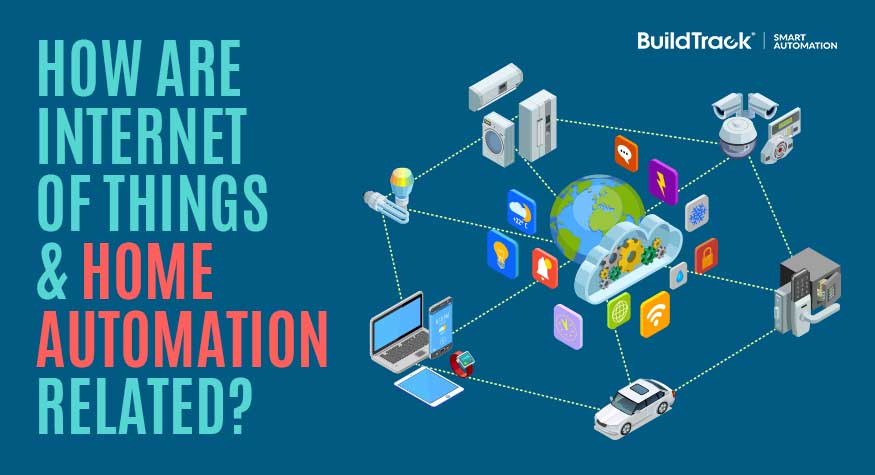Ph.D. in Automation and Internet of Things: Introduction, Admission, Registration, Eligibility, Duration, Fees, Syllabus 2024

Introduction:
The Ph.D. in Automation and Internet of Things (IoT) is a cutting-edge program designed for aspiring researchers interested in the convergence of automation, data science, and networked technology. This doctoral program emphasizes the development of innovative IoT solutions and automation technologies that can transform industries such as manufacturing, healthcare, urban development, and agriculture. Students engage in a multidisciplinary curriculum that covers advanced topics in machine learning, sensor technologies, network security, and data analytics.
Admission Process:
- Application Submission: Candidates must submit a detailed application, including academic transcripts, a statement of purpose, a research proposal, and professional references.
- Technical Background: Applicants are expected to have a strong foundation in computer science, engineering, or related fields, with significant exposure to programming and system design.
- Research Experience: Demonstrated experience in research or professional projects related to IoT or automation technologies.
- Interviews: Potential candidates will participate in interviews to discuss their research interests and potential fit with the program’s objectives.
- Entrance Exam: Some programs may require a standardized test such as the GRE, particularly focusing on quantitative and analytical sections.
- Funding and Scholarships: Understanding of available funding opportunities and scholarship options which can be critical for admission and sustained research.
Eligibility Criteria:
- Educational Qualifications: A Master's degree in engineering, computer science, or related technical field with a strong academic record.
- Technical Skills: Proficiency in programming languages such as Python, Java, or C++, and familiarity with hardware and network configurations.
- Research Proposal: A well-defined research proposal that outlines innovative ideas in the realm of IoT and automation.
- Professional Recommendations: Strong letters of recommendation from academics or industry professionals attesting to the candidate’s abilities and potential for research.
- Language Proficiency: Fluency in English, with requisite scores in TOEFL or IELTS if applicable.
- Interdisciplinary Knowledge: Understanding of interdisciplinary applications of IoT and automation, including ethical implications and sustainability issues.
Completion Time:
A Ph.D. in Automation and IoT typically takes about 4 to 6 years to complete. The journey begins with coursework that solidifies foundational knowledge and introduces advanced concepts.
Career Opportunities:
- Academic Researcher: Contributing to scholarly work and teaching in universities.
- Industrial Research and Development: Leading innovative projects in technology companies focusing on smart technologies and IoT solutions.
- Consultancy in Automation and IoT: Providing expert advice to businesses on integrating IoT technologies for improved operations.
- Government Advisor: Shaping policies related to technology, data security, and infrastructure development.
- Entrepreneurial Ventures: Starting tech companies that develop new products or services in the IoT and automation space.
- Technical Leadership Roles: Positions such as Chief Technology Officer (CTO) in companies leveraging IoT and automation for competitive advantage.
Syllabus:
- Advanced Programming for IoT: In-depth coverage of programming languages and frameworks specific to IoT applications.
- Machine Learning and Data Analytics: Techniques for analyzing large data sets generated by IoT devices.
- Sensor Technology and Signal Processing: Study of sensors, their deployment in IoT, and processing of the signal data they generate.
- Cybersecurity for IoT: Addressing vulnerabilities and developing robust security protocols for networked devices.
- Automation Systems: Design and analysis of automated systems that are enhanced by IoT technologies.
- Ethics and Legal Issues in IoT: Understanding the ethical implications and legal considerations in deploying IoT solutions.
Internship Opportunities:
- Tech Startups: Hands-on experience in innovative startup environments focusing on IoT.
- Industrial Internships: Placements in major companies to work on real-world automation projects.
- Research Institutions: Opportunities to collaborate with leading research groups globally.
- Government Projects: Involvement in projects commissioned by governmental bodies focused on smart city developments or national security.
- International Collaboration Programs: Participation in international programs to gain exposure to diverse technological landscapes.
- Corporate Research Labs: Internships in R&D departments of major tech corporations.
Scholarship and Grants:
- University Fellowships: Full or partial funding covering tuition and living expenses.
- Industry-Sponsored Scholarships: Scholarships provided by tech companies interested in promoting research in IoT and automation.
- Government Research Grants: Funding from government agencies for projects that demonstrate potential public benefits.
- International Study Grants: Financial support for conducting part of the research abroad or in collaboration with international institutions.
- Conference and Workshop Sponsorships: Grants to attend important industry conferences and workshops.
- Innovation Awards: Competitions and awards for innovative research proposals or projects.
FAQs:
What prerequisites are needed for a Ph.D. in Automation and IoT?
A master’s degree in a relevant field, strong technical skills, and a solid research proposal.
How long does it typically take to complete this Ph.D.?
Generally, 4 to 6 years depending on research complexity and coursework requirements.
What career options are available after obtaining this Ph.D.?
Opportunities in academia, industry R&D, government advisory roles, and entrepreneurial ventures.
Are there practical experience opportunities during the program?
Yes, through internships in industries and research projects in various settings.
What funding opportunities exist for this Ph.D. program?
Scholarships from universities, industry sponsorships, and government grants.
